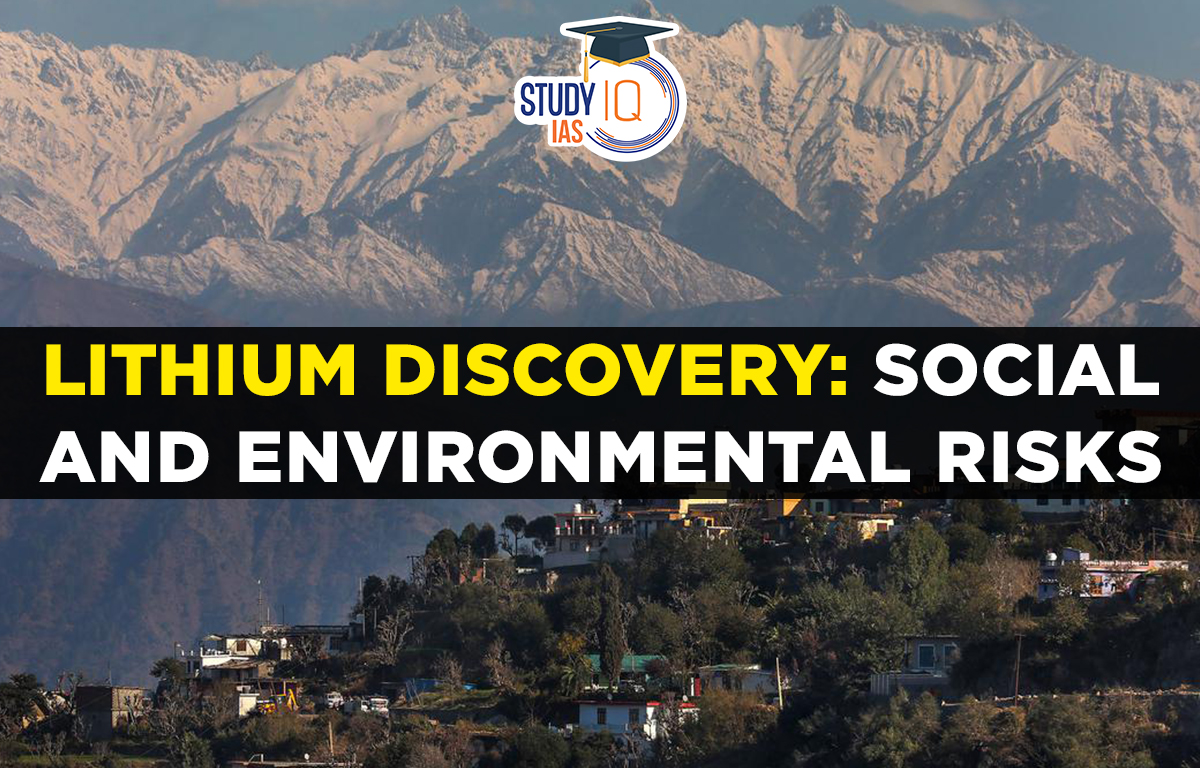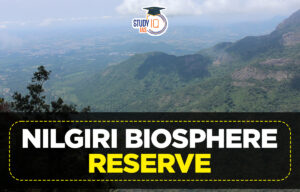Table of Contents
Context: Recently the Geological Survey of India (GSI) established 5.9 million tonnes inferred resources of lithium in Salal-Haimana area of Reasi district of Jammu and Kashmir (J&K).
What are Inferred Resources?
- The term ‘inferred’ refers to the ‘preliminary exploration stage’, the second of a four-step process, according to the Mines and Minerals (Development and Exploration) Act 1957.
- Inferred Resources means “part of a mineral resource for which tonnage, grade and mineral content can be estimated with a low level of confidence”. It is inferred from geological evidence and assumed but not verified.
Significance of J&K Lithium Reserves for India
- Rising demand: A World Bank study suggests that the demand for critical metals such as lithium (Li) and cobalt is expected to rise by nearly 500% by 2050.
- Reduce import dependence: As India currently imports all of its Li from Australia and Argentina and 70% of its Li-ion cell requirement from China and Hong Kong.
- EV Penetration: The J&K reserves will also help advance the Indian government’s ambitious plan of “30% EV penetration in private cars, 70% for commercial vehicles, and 80% for two and three-wheelers by 2030 for the automobile industry.”
- Geostrategic significance: China currently controls 77% of the global lithium-ion battery manufacturing capacity. A high level of dependence on China for Li and other crucial metals and their derivatives are perceived to be sources of energy security risks.
What are the Social and Environmental Risks Associated with Lithium Mining?
- CO2 emissions: Extracting Li from hard rock mines entails open-pit-mining followed by roasting the ore using fossil fuels. This process releases 15 tonnes of CO2 for every tonne of Li extracted.
- Water scarcity: Also, the process of Li extraction from hard rock mines consumes 170 cubic metres of water for every tonne of Li extracted.
- Environmental degradation: Open-pit-mining, refining, and waste disposal from these processes substantially degrades the environment, including depletes and contaminates waterways and groundwater, diminishes biodiversity, and releases considerable air pollution.
- Land subsidence: Mining lithium in the young and geologically unstable Himalayan Mountain ranges poses significant risks, such as land subsidence like in Joshimath.
- Human rights violations: In some areas where lithium is mined, there have been reports of human rights violations, including the exploitation of local communities and forced displacement.
About Lithium
- It is the lightest metal and the lightest solid element under normal circumstances.
- It has a low melting point and a low specific heat capacity, making it an ideal material for heat transfer applications.
- Vast Applications:
- Lithium is one of the key components in electric vehicle (EV) batteries.
- Lithium is used not only in EVs but also in batteries for gadgets like laptops and mobile phones.
- It has also found application in the glass and ceramics industries.
- Lithium has been dubbed “white gold” for its widespread usage in items indispensable to modern-day living.
Case Study: The Impacts of Lithium Mining on Human Rights in Argentina
- Argentina is the third-largest producer of lithium in the world, after Australia and Chile.
- In August 2021, the Argentine Foundation for Environmental Law (FARN) published a report titled “Lithium in Argentina: A Human Rights Perspective.”
- The report examines the environmental and social impacts of lithium mining in Argentina and how they affect the human rights of local communities.
- The report highlights the water-intensive nature of lithium mining and its potential to affect water availability for local communities.
- It also notes the risks of soil and water pollution, as well as the potential for land disturbance and habitat destruction.
- The report discusses the potential for mining activities to affect the rights of Indigenous peoples, particularly their right to free, prior, and informed consent, as well as their cultural rights and access to traditional lands.



 Indian Councils Act 1861, History, Provi...
Indian Councils Act 1861, History, Provi...
 Daily Quiz 17 April 2025
Daily Quiz 17 April 2025
 Nilgiri Biosphere Reserve, Map, Climate,...
Nilgiri Biosphere Reserve, Map, Climate,...





















